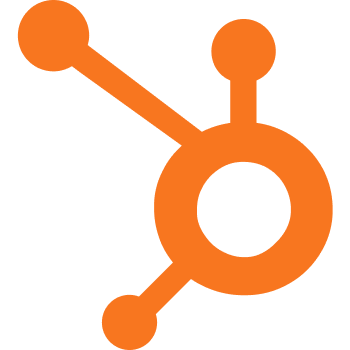Industry-Specific Help Desks
What is behind the “industry-specific help desk”?
Every business wants to turn a support strategy into a quality customer experience, and help desk software makes this happen. All you need to do is to pick up the right industry-specific help desk system to streamline your success.The functionality of an industry-specific help desk is designed to meet your business and industry needs. It extends a consistent and seamless experience and delivers expected customer service.To make people use the product or service, businesses across many industries employ service desk software to track, manage, analyze internal support requests and operations. These platforms don’t replace customer service teams (IT, HR, and finance,) but help them to perform better – automate the routine tasks and processes, assign and route tickets, collect report on issues, customer satisfaction, and support agent performance.
Contact us
Types of Industry-Specific Help Desk Software
eCommerce & Retail
Healthcare
Nonprofits
Finance Services
Education
Travel & Hospitality
Help Desks for eCommerce & Retail
This help desk software integrates with eCommerce platforms and handles communication, collects interaction history, and adds up to customer loyalty and returning customers.
What are the basic features of eCommerce help desk software?
With the expense of the available features, a help desk can be both: a platform for support service and a part of IT service desk software.- Multichannel support
- Macros
- Supported eCommerce platforms
- Collision detection
- Knowledge base
- Snooze tickets
- Query intent detection
Help Desk for Healthcare
Create a better end-to-end patient experience and ensure seamless collaboration using healthcare help desk software. Healthcare providers can focus on medical assistance, connecting patients, members, and employees, and elevating service during & post-treatment.
What are the core features of Healthcare help desk software?
With a healthcare help desk system, you can streamline operations and deliver high-quality medical service. To build a healthcare organization with long-term benefits using such features:- Reporting & metrics
- Collaboration tools
- Patient profiles
- Multi-support channels
- Security and HIPAA Compliance
- SLA
- Dependencies
Help Desks for Nonprofits
Help desk software for nonprofits lets you meet people’s needs and improve communication, and carry out organized and effective fundraising. Personalize your relationships with donors, beneficiaries, volunteers, and board members right on one platform.
What are the common features of nonprofit help desk software?
Give everybody a fulfilling user experience while raising donations and engaging volunteers with:- Help desk automation
- Canned responses and templates
- Subject tags and priority labels
- Self-service portals & community forums
- Multi-level IVRs
- Multichannel support
- Reporting
Help Desks for Finance Services
Offer the industry-specific data privacy and reliable service to bank and finance customers with a help desk for BFSI. This type of customer service app helps you engage with customers via a preferred communication channel to fill out forms online, solve payment errors or help with any other requests.
What are the basic features of the help desk for BFSI?
With a help desk for finance services, your customer communication will be in place and nothing slips through the cracks due to:- AI chatbots
- Knowledge base
- Multiple support channels
- Reporting
- Whitelisting
- APIs and integrations
- HIPAA and GDPR
Help Desks for Educational Institutions
This support service software helps schools and universities meet student expectations and maintain relationships across their entire lifecycle. Designed for administration and students, a help desk for education streamlines processes in all departments and ensures quick responses to requests and inquiries.
What are the common features of help desk software for educational institutions?
Collect and analyze support service data, set up and launch follow-up campaigns. Help desks improve customer service in the educational sector with:- A shared email inbox
- A knowledge base
- Automations & workflows
- Reporting
- Canned responses
- Private notes
- Asset management
Help Desks for Travel & Hospitality
A help desk software for travel & hospitality empowers your agents to map delightful journeys for avid travelers. This customer service solution makes it easy to seek help on any preferable support channel and equips your reps with customer history to provide a personalized experience and improved loyalty level.
What are the core features of travel & hospitality help desk software?
Implement a help desk system for hospitality to deliver quick responses and make your customer service more efficient with:- Omnichannel customer support
- Reporting & analytics
- Satisfaction surveys
- Help desk automation
- Knowledge base
- Collaboration options
- Chatbots
Deployment of Help Desk Software
Help desk systems vary depending on deployment and source code accessibility. The industry-specific help desk solutions are presented in four types: web-based, on-premise, open-source, and enterprise.
Web-based or cloud-based help desk software takes care of cloud infrastructure, hardware, storage, operating system, and applications.
On-premise help desk software includes the one-time-purchased license, works on local computing, and uses your company facilities.
Open-source help desk software has an open-source code that your team can install and modify to enhance processes or add extra features.
Enterprise help desk software offers advanced features, developer sandboxes, and API capabilities for personal and public apps integrations, SLA, and extended vendor support.
Basic Functionality of an Industry-Specific Help Desk
There is no shortage of tools and features offered by numerous platforms. However, the essential industry-specific help desk software options are
Multi-channel support
Customers ask for help via email, call center, live chat, social media, self-service portals, knowledge base, and FAQs. Choose what suits your audience.
Ticketing system
It helps track, manage, and respond to customer queries and internal support.
Ticket-routing and escalation levels
Get the customer’s issue to a support agent to handle it properly.
Automation
Spend less time and effort on administrative tasks, repetitive and common requests.
Dashboard
It gives a bird-eye view of the essential data and you can tailor it to your business or rep’s requirements.
Knowledge base
Add and update guides and instructions so your customers can solve their issues without contacting your support team.
Reports and analytics
Gather your KPIs like first response time, average response rate, top issues, and time tracking, and drive insights for further business improvement.
Five Benefits of Industry-Specific Help Desk Software
When you consider industry-specific help desk software, lasting customer delight isn't the only thing you get:
Cut down operating costs. Automation and self-service options reduce the support team's workload and save time on more high-priority issues.
Boost customer satisfaction & loyalty. Use chatbots to give quick responses to common questions and send surveys to collect customer feedback.
Improve the quality of customer service. Use ticket routing to assign the ticket to a specified agent and get a streamlined resolution.
Centralize all data. Collect information in a single place for better support service and analysis for improving the weak spots.
Provide omnichannel support. Set up multiple channels to interact with your customers via the communication channels they prefer to use.
How to Choose a Suitable Industry-Specific Help Desk System?
Despite the industry you work in, you’re striving to provide timely and high-quality customer service. And that's when an industry-specific help desk comes in handy. The question is how do you pick one?
Decide on your budget
First things first, calculate what is your budget for implementing and maintenance of a help desk, team onboarding, and third-party integrations. Don’t neglect future planning and evaluate what is the scaling potential of your business and support team in the nearest year or two. The help desk deployment impacts the initial costs: When on-premise and cloud-based solutions might be expensive, open-source will be cheaper on the condition you have an IT dept to maintain, customize and upgrade it.
Define the needed features
Depending on your business workflow, compile a list of must-have and nice-to-have features. Consider preferred support channels, automation capabilities, and knowledge base for external and internal usage. This way, you can get a list of functions of your ideal help desk system.
Test suitable help desk platforms
Every help desk vendor offers a free trial, freemium, or custom demo so you can check the customer service software in action. Be sure to take this advantage and test how the needed features work. For example, try to create, assign and resolve a ticket, set up a simple automation, generate a report or two, etc. Apart from software performance, evaluate the UI and UX – just to know how much setting you have to do and how long the agents’ onboarding might take.
Check vendor’s security compliance
Don’t fall into the trap that data security is the responsibility of your software vendor only – it’s like a tango – takes two. Setting up security measures is your security strategy, and help desk vendors’ compliance with industry standards, encryption, and third-party access should be checked properly. Ensure that your desired help desk software complies with the current standards and legal data regulations of your country and regions of your customers.
Check the vendor’s credibility
Evaluating the help desk's functionality is a must, but you must also consider such aspects as reputation, longevity, and credibility of the vendor. In addition, pay attention to the privacy policy, SLA, and Terms of Service. This way, you determine the available technical support, additional services, refunds, possible ways to handle legal issues, etc.




